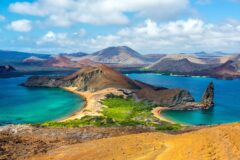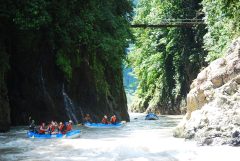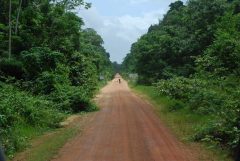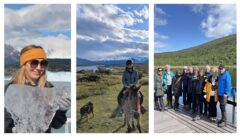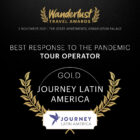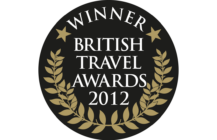Five books on South American ‘discovery’

Five books on South American discovery and expedition
Latin America will always bring up visions of exploring lost cities in thick jungle, but what is it actually like to head off into the unknown in search of secrets lost to the world? Luckily many of those who returned (and a few who didn’t) have left us with transcripts of their adventures which make for a thrilling read.
1. A Relation of the Great River of Amazons in South-America by Cristóbal de Acuña
written in 1641
One of the rarest books on earth, written by Jesuit priest Cristóbal de Acuña, it tells of a ten month scientific journey along the length of the Amazon River from Quito to Belem. It is the first account of the entire river by a European (Not to be confused with Francisco de Orellana, the first European to navigate the length of the Amazon, the full account of which wasn’t published until 1894). Philip IV, the then King of Spain had most of the printed copies of the book destroyed in an attempt to stop the Portuguese (who in 1640 revolted against the Spanish Habsburgs) from gathering the incredibly vital information on the New World it contained, which untimely failed. It was translated into English later in the 17th century and remained a vital source book for many of the 18th and 19th century explorers looking for lost civilisations in Latin America.
2. Lima and Cuzco by Sir Clements Markham
written in 1853
In 1893 Sir Clements Markham became head of the Royal Geographical Society and most notably re-energised British exploration of Antarctica. During 1853, a few decades after the death of Tupac Amaru II and Peru gaining independence from Spain, Markham spent a year exploring Lima, Cusco and other parts of (the then few) remnants of the Inca empire – the first study into the Inca civilisation by a British explorer. Markham returns to Peru on a number of occasions and in 1910, while in his eighties, he publishes his overall thesis and in depth study ‘The Incas of Peru’. A young American named Hiram Bingham reads both these books and re-discovers the ancient Inca city of Machu Picchu in 1911.
3. The Discovery of Guiana by Sir Walter Raleigh
written in 1596
The Discovery of Guiana tells the tale of the great rivers of Guyana and the supposed route to ‘El Dorado’, the fabled lost city of gold. The book embellishes the country and repeatedly incorrectly tells of gold riches larger than Peru. Many of our legends of Latin America comes from Raleigh’s stories in his book, such as the fierce Amazonian women and the reoccurring myth that there is a city paved with gold and jewels buried deep in the Amazon jungle waiting to be re-discovered. Raleigh’s second exploration of the Guiana’s ultimately becomes the reason for his execution. After a group of his crew attacks a Spanish outpost along the Orinoco River, breaking a condition of Raleigh’s pardon from imprisonment in the Tower of London, the Spanish Ambassador demands that King James I reinstates Raleigh’s’ death warrant as punishment. This combined with only tall tales of gold and no tangible evidence of lost cities meant Sir Walter Raleigh was destined to lose his head on the block.
4. On the Origin of Species by Charles Darwin
written in 1859
Probably the most well known book in this list, it hardly needs much explaining. For those unfamiliar with its contents, it is a study into life sciences and provided a huge amount of evidence that the diversity of life on earth had come from a universal common ancestor through what Darwin called ‘a great tree of life’ a branching system of evolution. Darwin’s five year journey on the HMS Beagle took him most famously to the Galápagos Islands where he first developed his idea of the theory of evolution from the study of finches on the islands.
5. The Voyage of the Discovery by Robert Falcon Scott
written in 1907
Scott’s book on the events of the Discovery Expedition is by far the most thrilling and fascinating of the books on this list, and shows an eerie foreshadowing to the later expeditions of Scott and Shackleton. Unbelievably well written and with amazing tales of a (then) completely unknown and unexplored part of the world, it tells the story of Scott’s meticulous planning and execution of a scientific research expedition to Antarctica at the turn of the 20th century. The aforementioned Sir Clements Markham makes an appearance as does an account of Ernest Shackleton’s breakdown, which caused a rift between the two men. Both Shackleton and Scott returned to Antarctica on separate expeditions, and tragically for Scott, the Terra Nova expedition proved to be his last.
Tailor-made holidays
Flexible, custom-made holidays to Latin America created to match your exact requirements: our tailor-made itineraries are as unique as the clients for whom they are designed.
Design my tripPapagaio
Your edit for Latin American inspiration
Our exciting range of articles on Latin America explore everything from iconic destinations and lesser-known cultural gems to delicious traditional recipes. You’ll also find exclusive travel tips, first-hand client reviews and the chance to get your personal questions answered by our travel experts.
View Extraordinary Inspiration